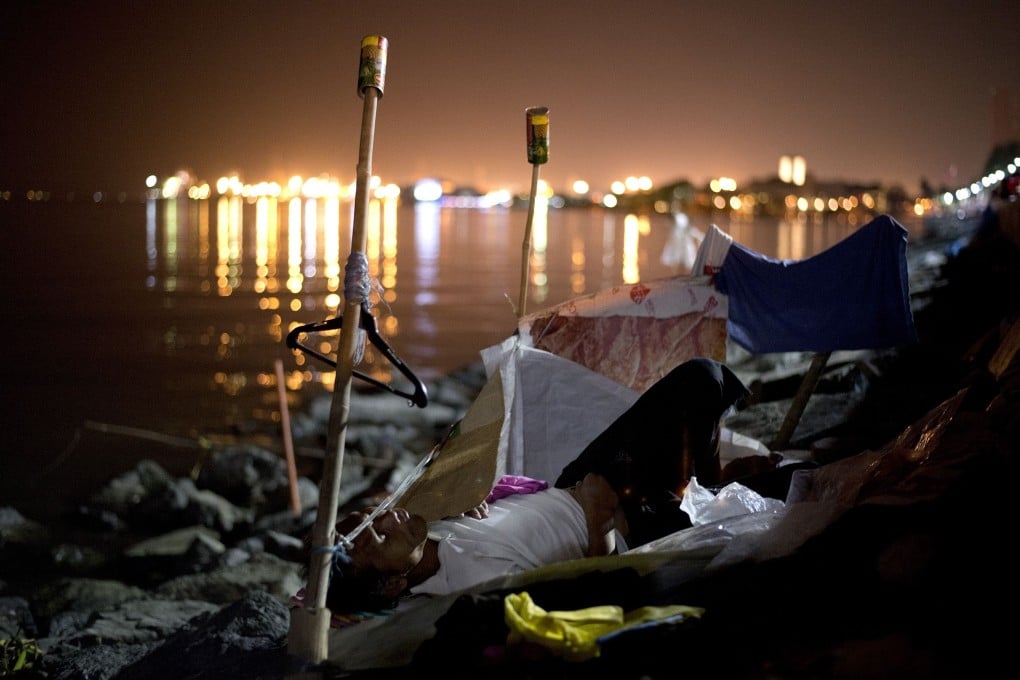Homeless programme attacked for hiding poverty on streets of Manila
Critics say initiative is cosmetic and aims to clear Manila's streets ahead of an Apec summit

A state programme to keep homeless families off Manila's streets rolls out this year amid criticism it is meant to hide the extent of the capital's poverty during an Apec summit taking place in November.
Eleven thousand families currently sleeping on pavements, in makeshift carts and on park benches will be offered the chance to live in "apartments" rented out for them by the state from six months to one year.
They will also be given work and a cash subsidy of up to 1,400 pesos (HK$246) each under a Modified Conditional Cash Transfer for Homeless Street Families (MCCT-HSF) programme targeting homeless families, Social Welfare Secretary Corazon Soliman said.
However, a congressional probe into the project is under way, prompted by reports dozens of street children were rounded up and placed behind bars in detention centres in order to hide them during Pope Francis' recent five-day visit.
Soliman confirmed to senators on Tuesday that vagrants were removed from streets where the papal convoy would pass, not to hide them from view but to keep them out of harm's way since the streets would be packed with people.
She denied they were mistreated, but added that the Manila Reception Action Centre, which was exposed in news reports as having kept a child in chains, was ordered shut down because it had no licence from her agency.
She said the children became part of 100 homeless families who were offered a five-day "family camp" at the Chateau Royale resort in Batangas, south of Manila, during the pope's visit. There, they were offered a chance to be registered under the government's MCCT-HSF programme. No date for the new scheme has been set, but the pilot, which began in 2012, now has 2,479 families, she said.
